| |
What's New at VIU December 2021 |
|
| |
| |
The December issue is dedicated entirely to the Calls for Application for VIU Intensive Graduate Activities in 2022.
The Graduate Activities are distinguished by their forward-looking vision, interdisciplinary approaches to tackling transversal topics, and peer-to-peer experience.
- PhD Academy: for advanced doctoral students in VIU member universities. No fees. Travel Grants available.
- Graduate Seminars: for master's and doctoral students in VIU member universities. No fees. Travel Grants available.
- Summer/Winter Schools: open also to students from non-member universities. Fees vary depending on the program.
|
|
|
| |
|
|
| |
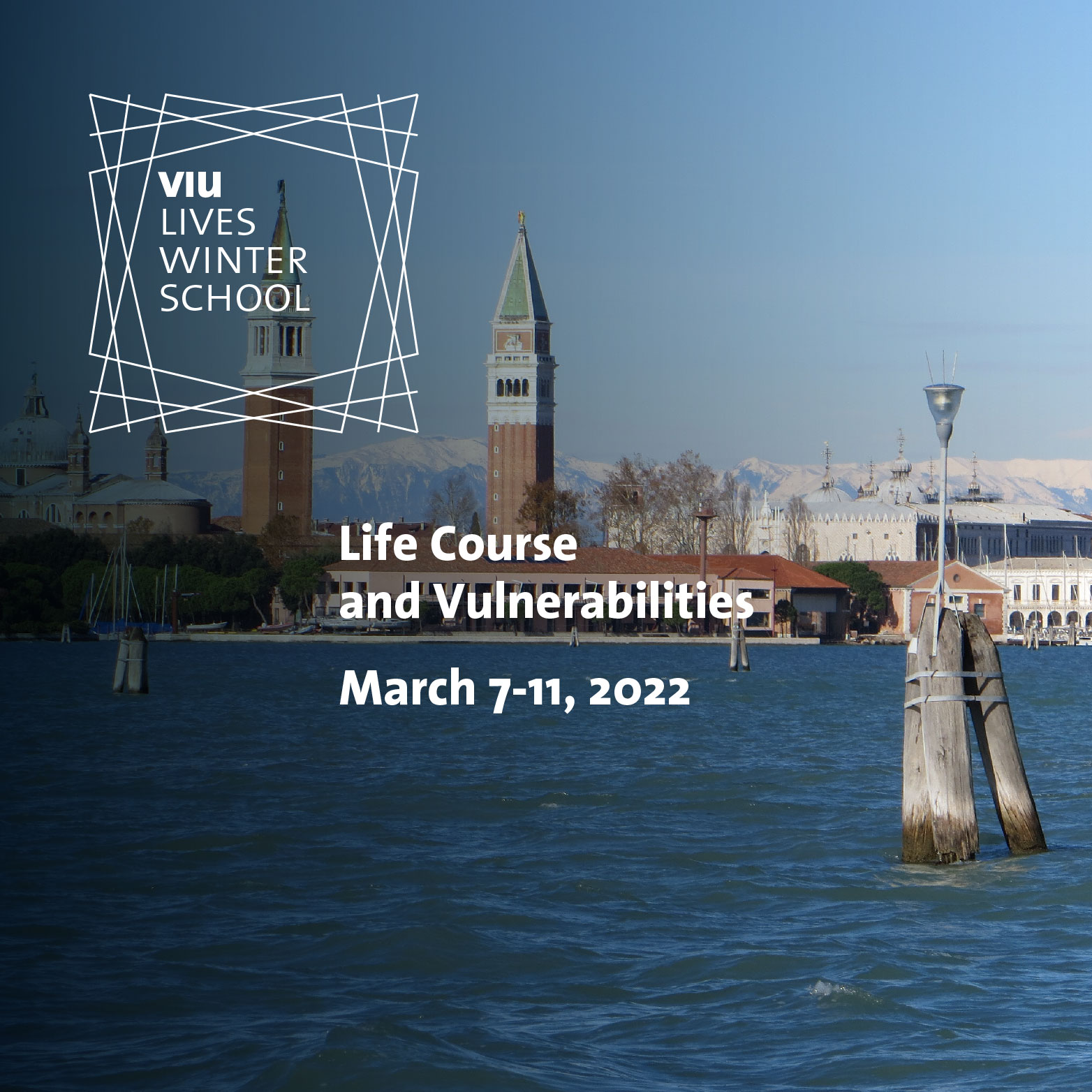 |
|
|
| |
This is the seventh edition of the LIVES Winter School, the third organized by Venice International University and led by the University of Lausanne.
During an intensive one-week program, doctoral students and young researchers will work on various fields of Life Course research through a multidisciplinary approach (Sociology, Psychology, Social Psychology, Life-span Psychology, Social Demography and Social Policies) led by internationally renowned experts.
In particular, the Winter School will focus on training the participants in the drafting of research projects or journal articles as a fundamental aspect of the academic career they are approaching. With a “learning -by-doing” approach, participants will go through all stages of these drafting processes.
Suitable for: PhD students, but postdoc researchers can also apply.
Disciplines involved are Psychology, Sociology, Social Psychology, Life-span Psychology, Social Demography and Social Policy, Statistics and Socioeconomics, depending on the tutors and the workshop contents.
Applications: November 26, 2021 – January 23, 2022
Visit Webpage
|
|
|
| |
|
|
| |
 |
|
|
| |
The summer school on Migration and Gender offers a legal-literary approach to the ways in which migration influences gender. Gender is a constitutive element of migration. The course will discuss both this idea, and reversing the formula, it will examine the role of migration in shaping gender, understood as relational and performative. A particular focus will be on identity in relation to human rights and law, labor and culture. The course is innovative and will combine the contribution of three scholars, in legal studies and literature.
The program is particularly timely in this moment of history in which migration is transforming societies and shaping gender.
The course will model the ways in which the humanities and the imagination might inform legal processes or contour legal decisions. This will play out in two ways: first through the integration of literature and law in our class discussions, and second though the students’ experiences of rewriting a legal decision from the perspective of what they have learned and discussed. In short, we hope that this course will educate a young generation of lawyers, academics and activists by raising awareness of many issues at the intersection of gender, migration and law.
Applications: December 1, 2021 – January 25, 2022
Visit Webpage
|
|
|
| |
|
|
| |
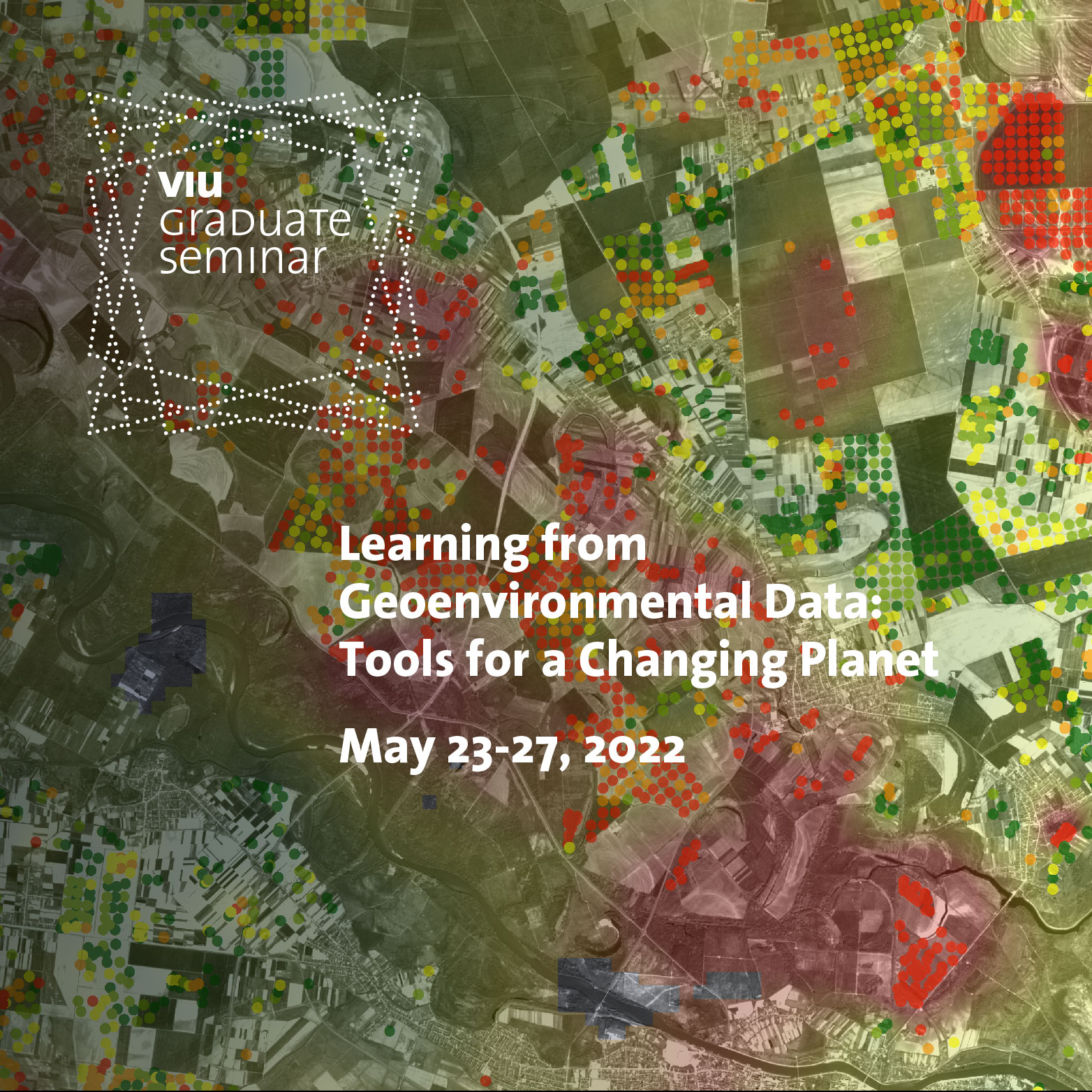 |
|
|
| |
The interactions between geoenvironmental and anthropic processes are increasing due to the ever-growing population and its related side effects (e.g., urban sprawl, natural resource and energy consumption, etc.). Natural hazards, land degradation, environmental pollution and climate change are some of the most evident results of the “interactions” between geosphere and anthroposphere. At a finer spatial scale, geo-environmental and geo-engineering issues in urban contexts or in the proximity of infrastructures represent a wide set of challenges that directly affect the critical zone. In this context, spatial and spatiotemporal data are crucial for the analysis, modelling and forecasting of the possible interactions between human activities and the geoenvironment.
Suitable for: advanced Master and early PhD students in Earth/Environmental Sciences, Biology and Spatial Ecology, Physical Geography. Applicants from humanities-related disciplines with computational skills and sound mathematical knowledge will be considered.
Applications: December 1, 2021 – January 31, 2022
Visit Webpage
|
|
|
| |
|
|
| |
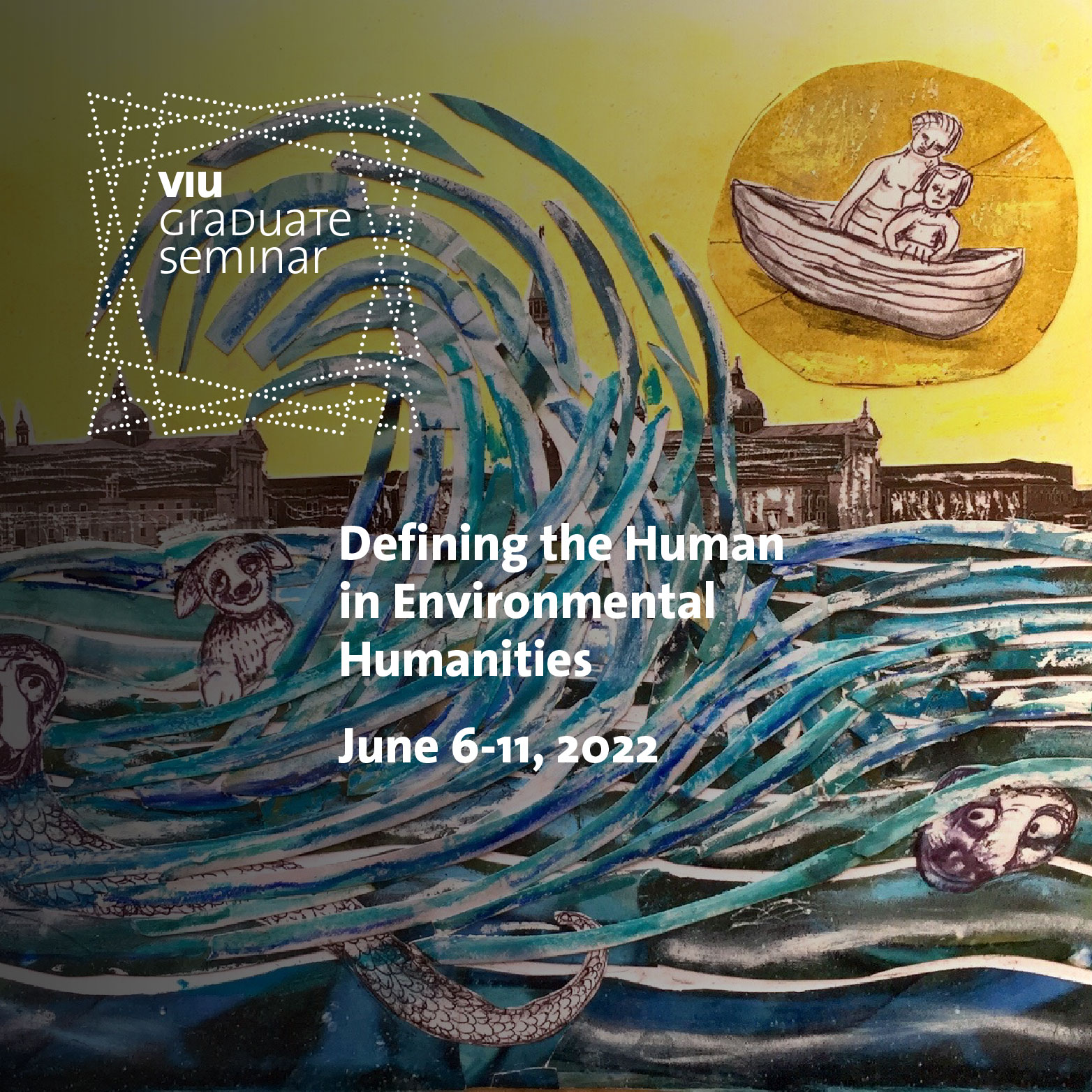 |
|
|
| |
Who is the “human” at the heart of environmental humanities? By definition, environmental humanists seek to explore the bond between humans and nature, and they dedicate themselves to promoting environmental policies and practices that are both socially just and robust. Yet, with the blurring boundaries between nature and culture, humans and non-humans in the Anthropocene, it is also an appropriate moment for environmental humanists to define what it means to be human and to recognize how the human transforms in light of new trends in the medical, scientific, technological, and philosophical fields. At the same time, urgent social trends—including migration spurred by climate change and environmental degradation—can significantly complicate a progressive agenda by raising the question of what we are willing to share with whom. How do we preserve a flexible and capacious understanding of the human, one that is capable of addressing all terrestrial beings?
The Graduate Seminar is divided into a three-day training session followed by participation in a three-day conference which is open to a broader audience of experts.
Suitable for: advanced Master and early PhD students in the Humanities, Social Sciences, and Environmental Sciences.
Applications: December 1, 2021 – February 15, 2022
Visit Webpage
|
|
|
| |
|
|
| |
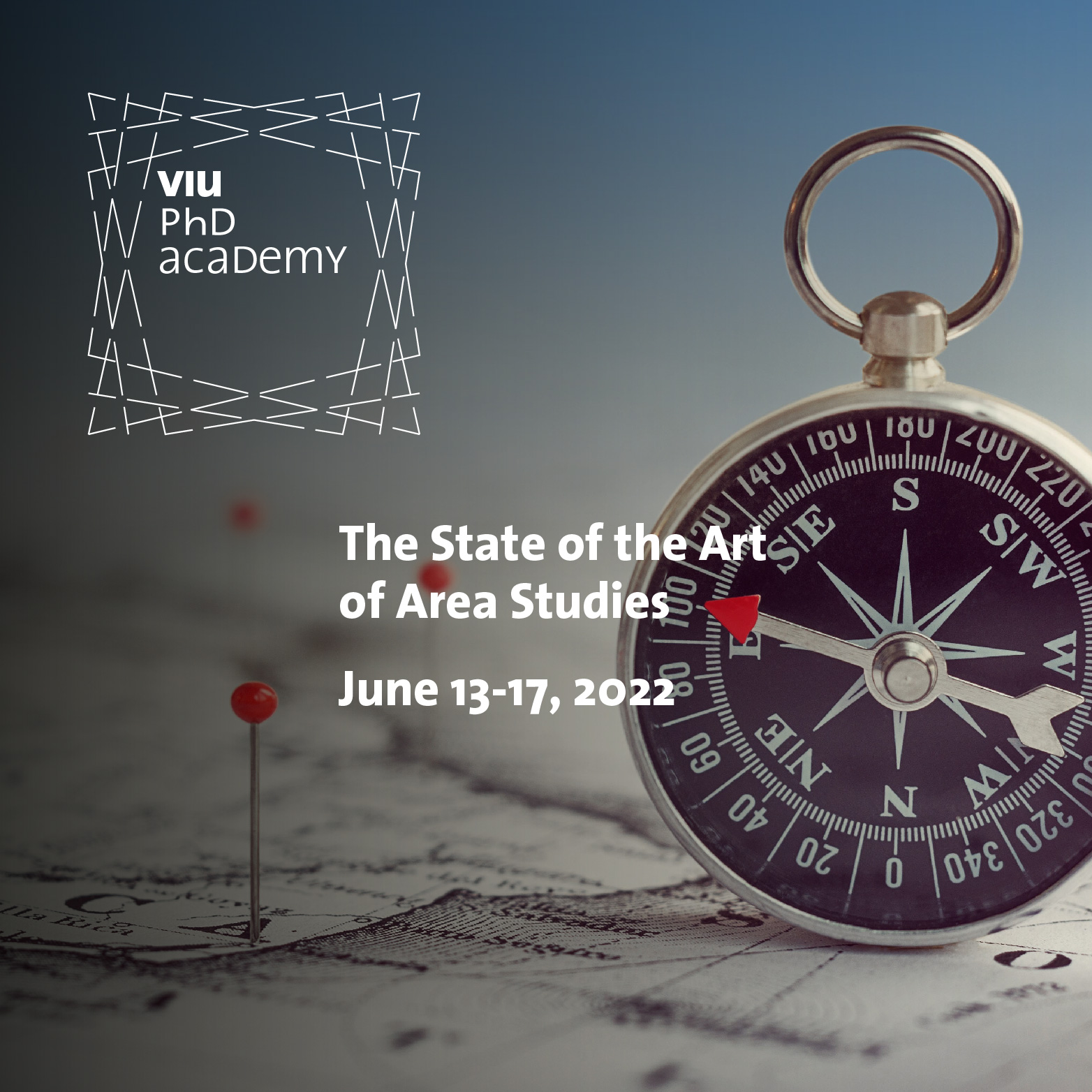 |
|
|
| |
As a field, Area Studies would seem to possess an unusual number of advantages in the contemporary academy: it is inherently inter- or trans-disciplinary, it offers students cultural capital and linguistic skills which are valuable in the marketplace as well as in the university, and its enclaves serve as repositories of expert knowledge which are of value to state and commercial actors. Scholars working in the field are also often skilled communicators, well used to explaining their parts of the world to the general public as well as to expert audiences.
As generations of graduate students discover, however, Area Studies also seems to be perpetually driven by two tensions: firstly, that it seeks to critique power, whilst feeding off and aiding the institutions it critiques; and, secondly, that the broader academy sees Area Studies as an un-disciplinary field, in which scholars often lose the rigor and coherence of their disciplinary background.
Suitable for: PhD students, Post-docs, and young researchers working in Area Studies, broadly construed.
Applications: December 1, 2021 – February 20, 2022
Visit Webpage
|
|
|
| |
|
|
| |
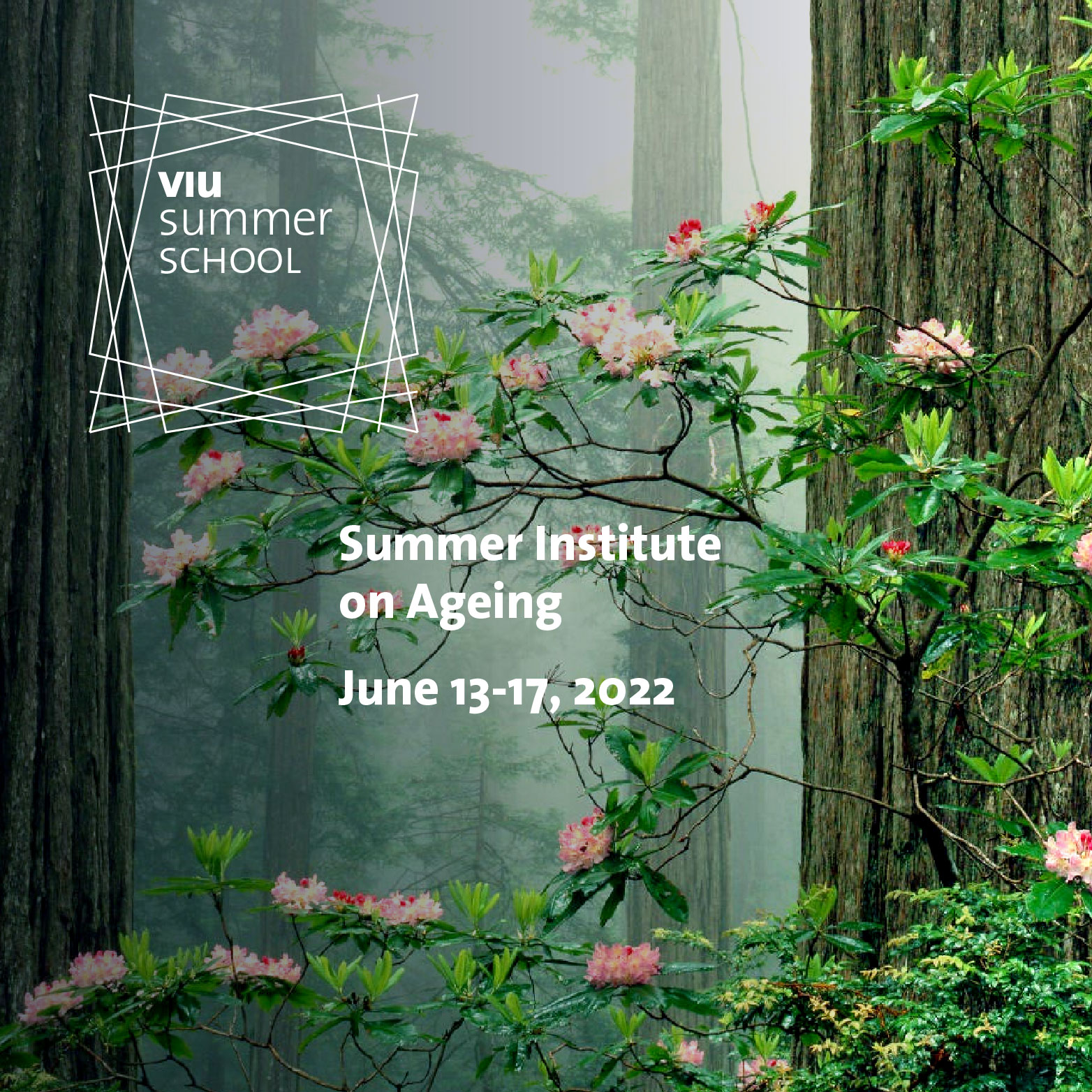 |
|
|
| |
This 9th edition of the Summer Institute on Ageing will focus on Global Ageing: Low- and Middle-income Countries. The Summer Institute provides students and early-career researchers with a multidisciplinary and rigorous understanding of the ageing process, ranging from some basic notions of the medical and epidemiological literature, to an extensive treatment of economics (pensions and retirement, ageing in society and intergenerational relationships) and of the sociological dimensions (intergenerational transfers, role of family networks).
A special focus is the use of large micro-data sets, such as SHARE (Survey of Health Ageing and Retirement in Europe) and sister surveys (HRS, ELSA, CHARLS).
Suitable for: Graduates, PhD students and post-doc scholars in economics, statistics, social sciences and medicine, but also professionals in the pharmaceutical and ageing care industries.
Applications: Dates to be announced soon
Visit Webpage
|
|
|
| |
|
|
| |
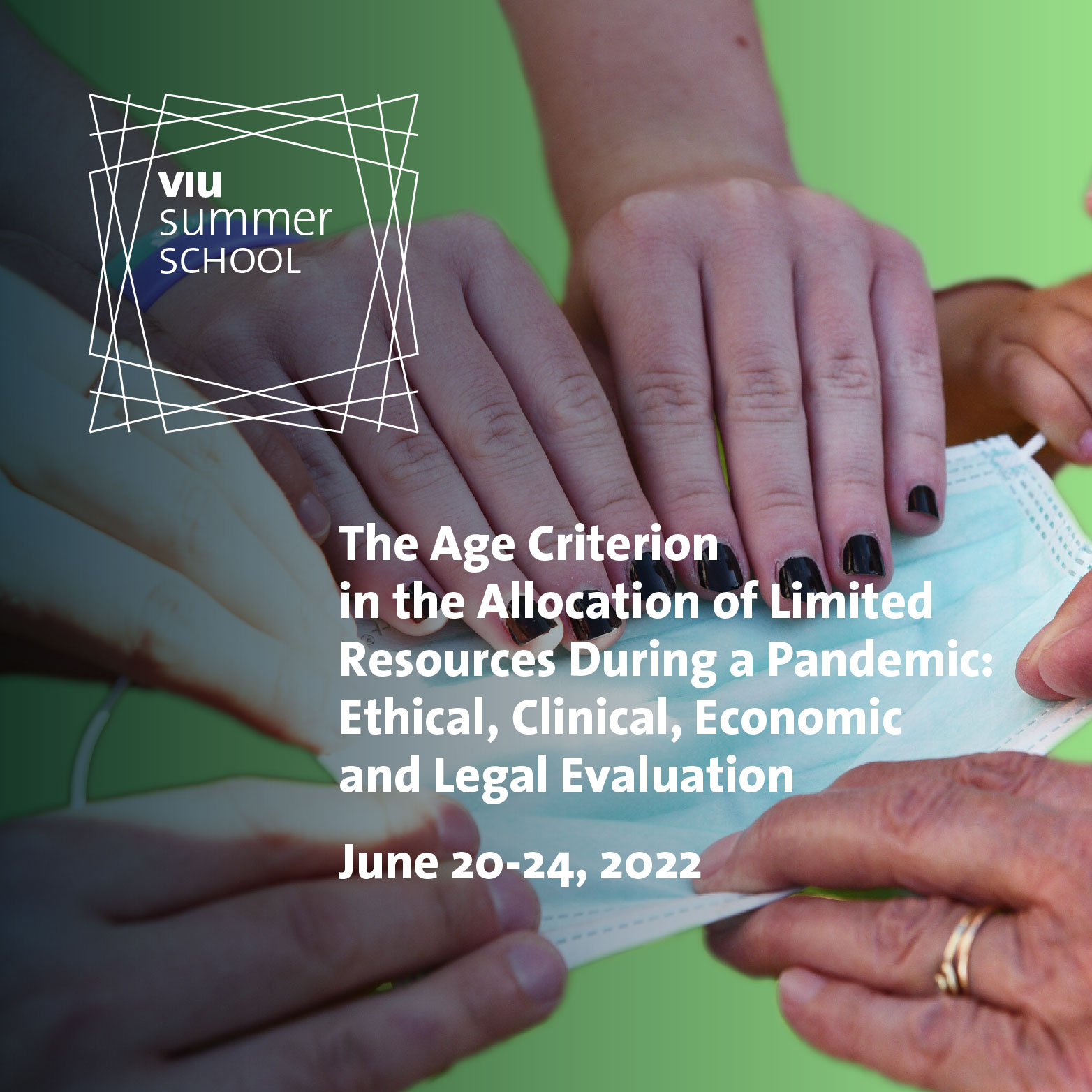 |
|
|
| |
The program offers students and early career researchers the opportunity to critically reflect, with the help of highly qualified experts, on topical issues that raise ethical and deontological dilemmas, relating to ageing and end of life.
A fundamental feature of the School concerns its method, which is characterized by a continuous and intense interdisciplinary exchange between doctors, philosophers, economists, jurists, psychiatrists and sociologists.
During this second edition, the course will focus on the problem of patient triage during the Covid-19 pandemic. In fact, it happened that in the most dramatic phases of the pandemic and in the most affected areas there were no ventilators for everyone or that other medical aids were lacking. The rationing of medical resources has raised concerns of various kinds, which have triggered wide-ranging reflections, in the medical, philosophical, economic, legal, sociological fields.
One of the most discussed and debated criteria for access to intensive care was based on the age of the patients.
Suitable for: Undergraduates, graduates, PhD students and post-doc scholars in philosophy, political sciences, sociology, social work, economics, statistics sciences and medicine, but also professionals in the pharmaceutical and ageing care industries.
Applications: December 1, 2021 – February 20, 2022
Visit Webpage
|
|
|
| |
|
|
| |
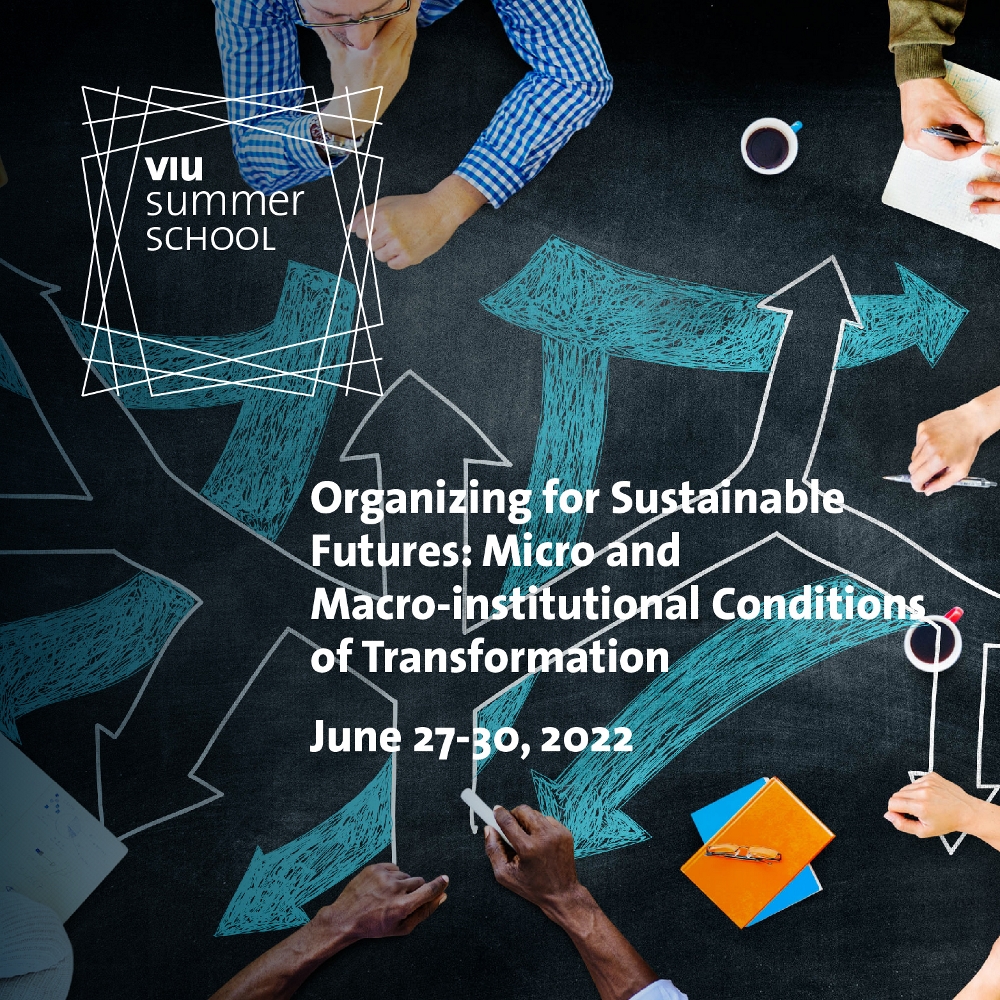 |
|
|
| |
In its sixth edition, the summer school aims at the development of ideas that promote a more sustainable future by bringing together young scholars from all over the world to discuss their ideas on the Grand Transition of our society from the microlevel of individual decision-making to the organizational and the societal level.
It gives young scholars the opportunity to discuss with eminent scholars in management theory and to test their ideas and present their work. Participants will become familiar with recent research from a broad set of disciplines.
They will work on their ability to engage in the transdisciplinary discourse which is required for the development of innovative answers to grand sustainability challenges.
Suitable for: current PhD students, post-doc scholars and young researchers in Management, Strategy, Organization Theory, Finance, Economic Sociology, and related disciplines from universities worldwide.
Applications: December 6, 2021 – March 6, 2022
Visit Webpage
|
|
|
| |
|
|
| |
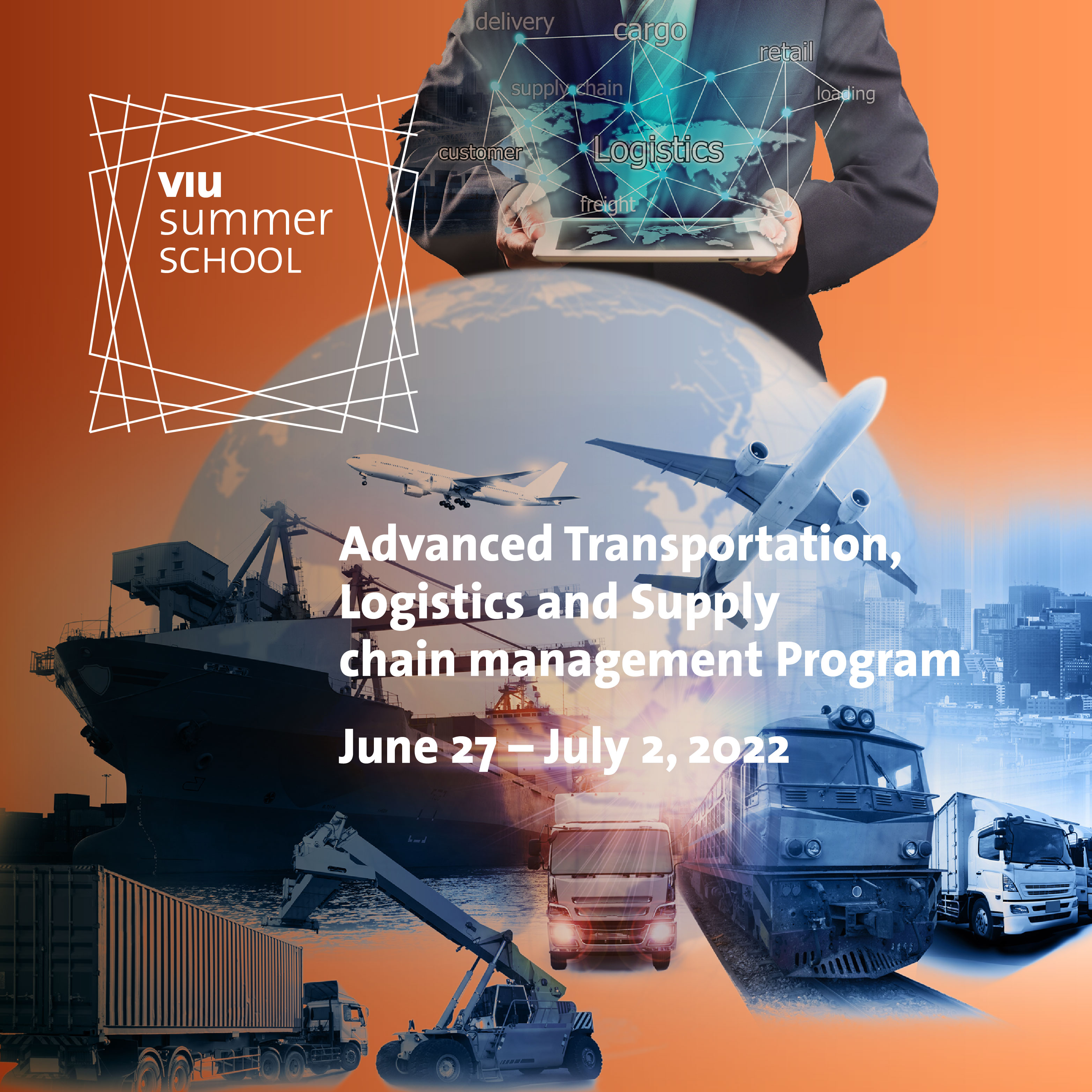 |
|
|
| |
The VIU Summer School on Advanced Transportation, Logistics and Supply Chain Management is an initiative of VIU in partnership with its member universities Iuav, Ca’ Foscari, the University of Padova, KU Leuven, Stellenbosch, and Tsinghua, in cooperation with the University of Naples Federico II.
The program develops an original comprehensive approach, bringing into focus the need for synergic engagement among policy-makers, planners, and private and public actors in transport, logistics and supply chain management.
The participants will explore the latest innovations in technology, business models, and policy-making. Through rigorous and non-conventional empirical and theoretical approaches we will explore emerging trends, strategic scenarios, IT and modelling tools (including demo labs), methods, case studies, and applied projects, and discuss how these can support business and policy-makers, achieve environmental sustainability, and socio-economic efficiency. Disruptive digital trends will be confronted with the physical impacts on the territory (“bits vs bricks” perspective).
Suitable for: graduates who have completed an undergraduate degree in Planning, Engineering, Geography, Economics, IT, Design, and Political Science. Applications are also welcome from professionals working in related fields.
Applications: Dates to be announced soon
Visit Webpage
|
|
|
| |
|
|
| |
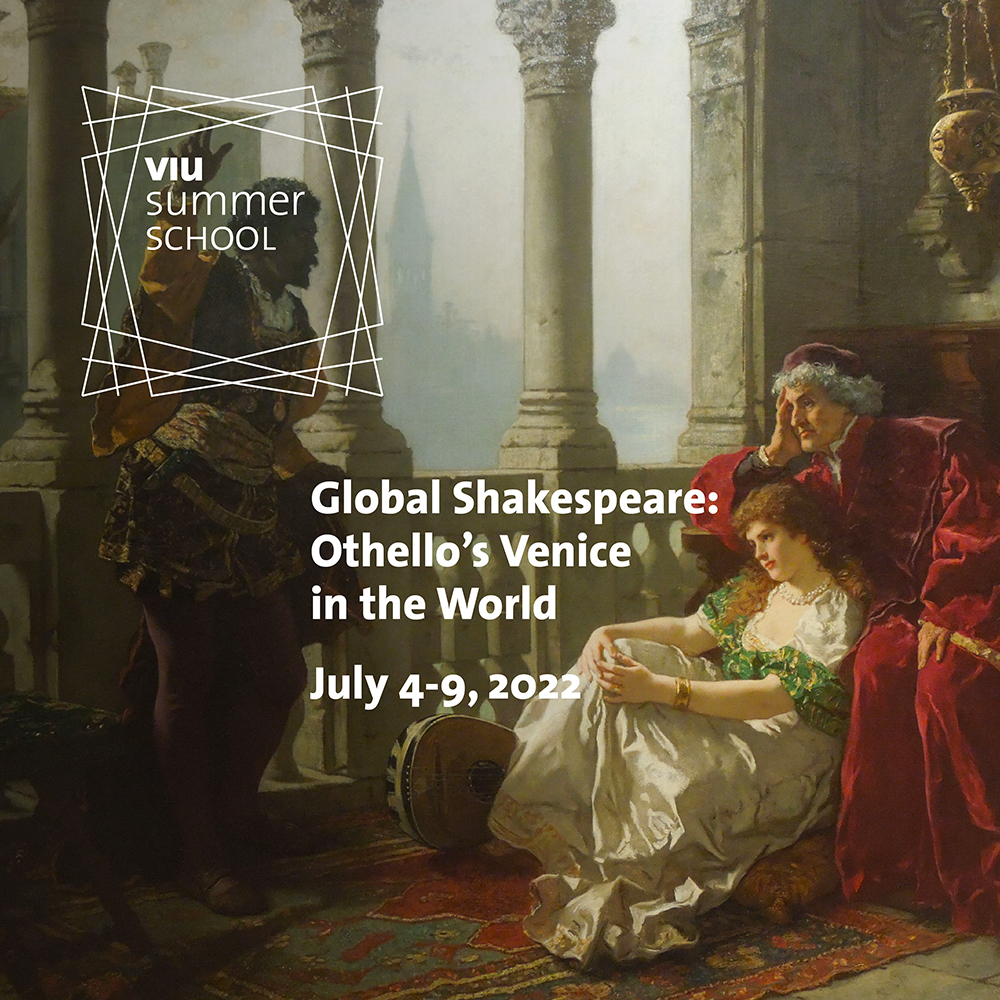 |
|
|
| |
The Summer School Global Shakespeare: Othello’s Venice in the World aims to gather an international cohort of graduate students for a week-long, multi-faceted exploration of one of the most timely topics in the interdisciplinary humanities: Shakespeare’s global contexts and futures. In order to provide focus and coherence, the play Othello, set in multicultural Venice, will be taken as a case study throughout the summer school.
“Shakespeare” is now a global vernacular—a resonant language available throughout the world as a form of self-expression and enquiry. Written at a time of incipient globalisation, Othello both represents and challenges the fraught dynamics of international cultural contact. By offering troubling insights into the development of the discourse of race, and by coupling that discourse to an unstable conflict between Christianity and Islam, the play speaks powerfully to our own world of religious, ethnic and national antagonism.
“Global Shakespeare” invites students to imagine alternatives to this increasingly fractured world. Using Shakespeare’s poetry and dramaturgy as a resource, it asks participants to consider how connections can be made across languages, religions, and nation states.
Suitable for: Graduate students (MA and PhD) from various disciplines: Literary Studies, Shakespeare Studies, Theater and Performance Studies, History, Politics, Philosophy, Anthropology, Media and Film Studies, Cultural Studies, Art, Gender Studies, Queer Studies.
Applications: December 1, 2021 – March 8, 2022
Visit Webpage
|
|
|
| |
|
|
| |
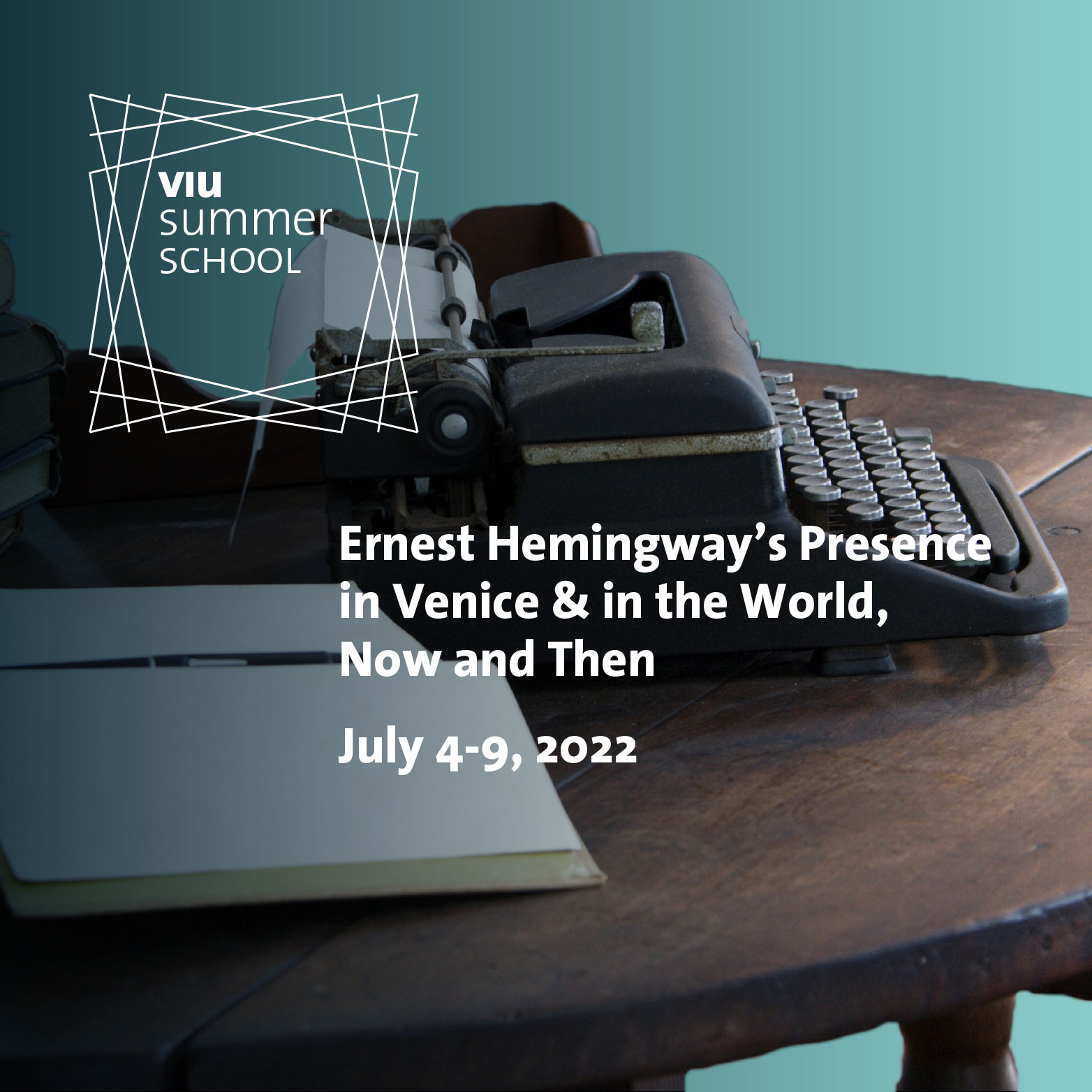 |
|
|
| |
This interdisciplinary summer school will take its cues from a short selection of accessible texts to explore Ernest Hemingway’s presence and influence in Venice and beyond. As for other places where he lived and worked—Pamplona, Key West, Paris, Havana—, Hemingway contributed to the international aura of Venice. Reading his works in the Venetian context will not only give students access to one of the most important Modernist writers, but it will also lead them to an examination of history, geography, cultural critique, language, and culture centered in Venice. With his ubiquitous presence in Venice and in the World, Hemingway offers us a key to many an aspect of modern literature and culture.
Reading Hemingway today in the privileged context where these texts take place or were created will enable students to discover a master of style of the English language and understand why Hemingway may be one of the most influential western authors in modern literature. As an American author in Venice, he sheds light on the complicated relations US culture has entertained with Italian culture and world cultures. His relation to languages is particularly interesting, and many things are gained in translation when we read him in such an interdisciplinary and international context.
Suitable for: Graduate students (MA and PhD) from various disciplines: Literary Studies, American Studies, Global Studies, History, Politics, Media and Film Studies, Cultural Studies, Art, Gender Studies, Queer Studies.
Applications: December 1, 2021 – March 8, 2022
Visit Webpage
|
|
|
| |
|
|
| |
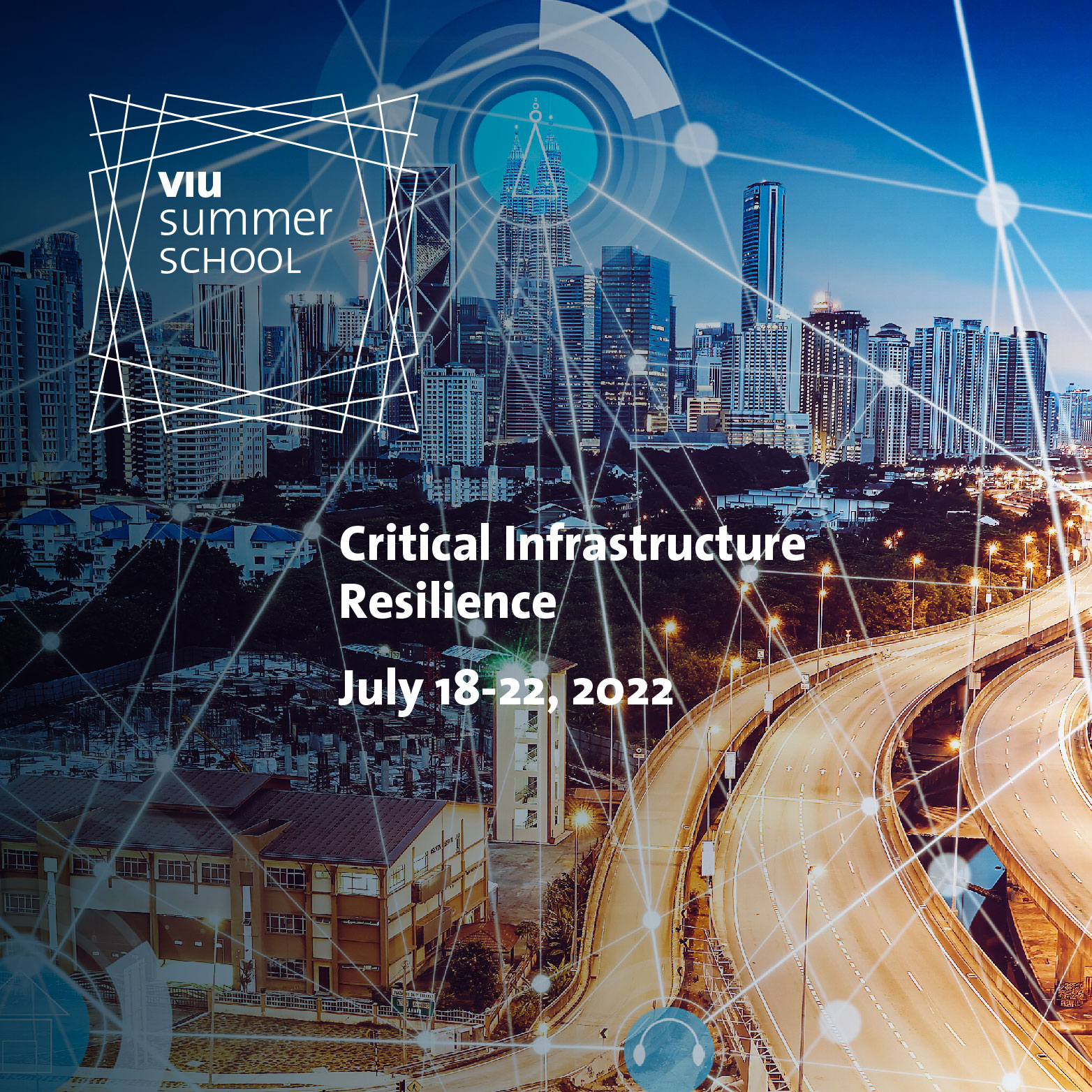 |
|
|
| |
The Covid-19 pandemic is the most recent shock that has affected our societies, and there are still significant uncertainties remaining for 2022. Decision-making is the single most effective factor in conditioning a successful recovery and building resilience for the crises to come.
In this 6th edition, the Summer School led by the University of Rome Tor Vergata offers a pragmatic framework and shares tactical tools used by governments and businesses. The framework reflects both national laws and the International Standard Organization guidelines and consists of: Life Safety, Business Continuity, and Economic Recovery.
Academics and professionals come together to offer this course because resilience is a key feature, whether we work at the city, business or sectoral scale.
The course consists of a mix of theoretical knowledge, case studies/projects and hands-on exercises. This course will discuss the concept of CI and aims to provide the participants with (i) a clear understanding of the framework and tactical tools, (ii) a series of existing decision-making tools used by public entities, businesses and international organizations, and (iii) peer learning from participant’s experiences.
Suitable for: Professionals, officials and graduate students already working on the topic or thinking their work may benefit from it.
Applications: Dates to be announced soon
Visit Webpage
|
|
|
| |
|
|
| |
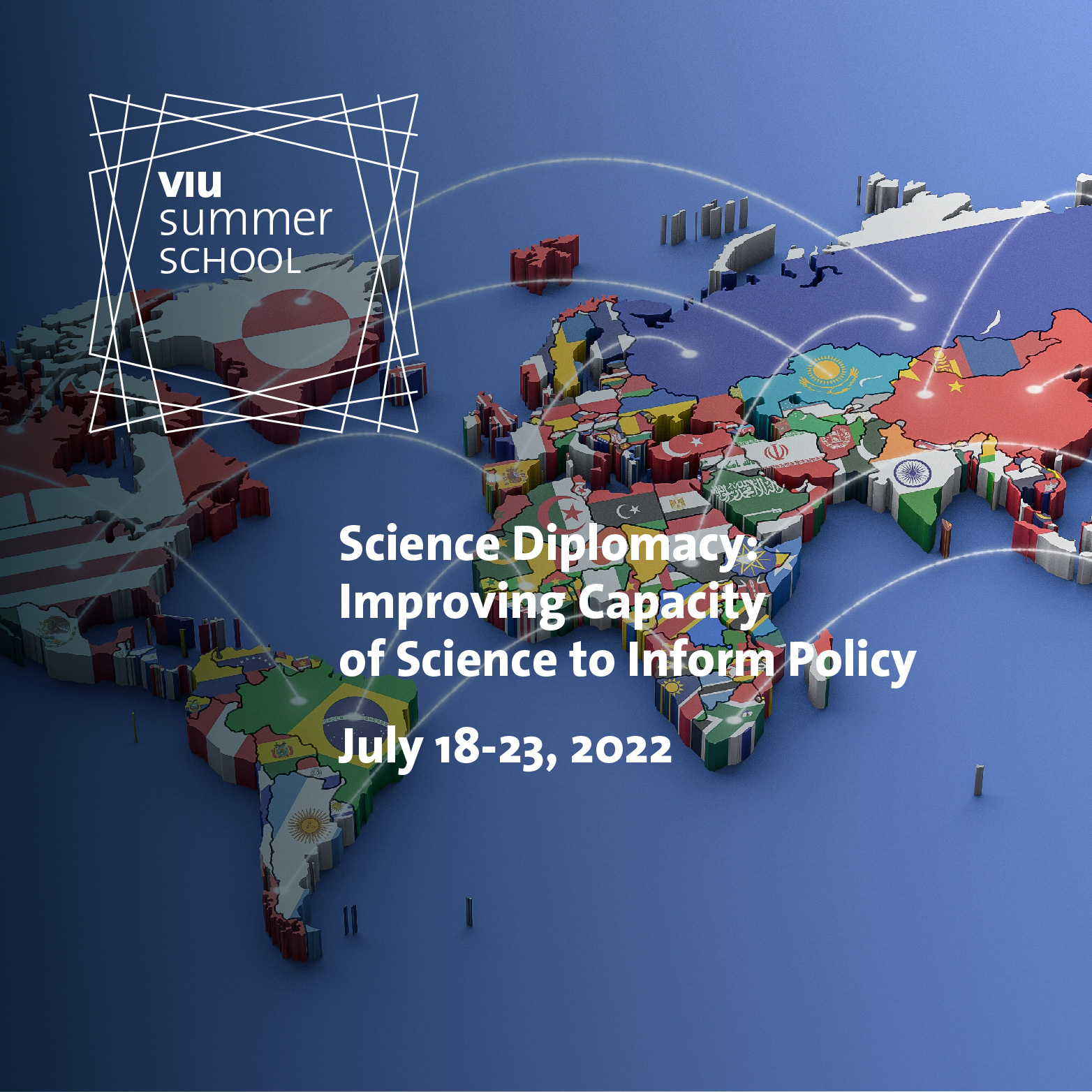 |
|
|
| |
Science Diplomacy is a tool that recognizes science as a process for pursuing evidence and diplomacy as a process for dialogue and cooperation between different stakeholders. In our increasingly interconnected world, there is a growing need for science diplomacy as we are confronted by issues concerning agriculture or trade, automation or cryptocurrencies, peace & security, global health pandemics, and climate change, among many other complex challenges. Our decision-making power is strengthened or weakened by the relevance, timeliness, reliability, and communication of information in a fast-paced changing environment. While academia includes specialties in translational science, public policy, health policy and other policy-related fields, these programs do not address the needs of the vast matrix of other scientific disciplines to provide students with training and tools to effectively partner and communicate with non-scientists, whether they are policy-makers, community leaders or the general public. This is Science Diplomacy at its core—partnerships to eliminate cultural, sectoral, and knowledge barriers.
Suitable for: Graduate students (Master’s and PhD) from various disciplines: Global/Public Health, Environmental Science, Economics & Political Science, Anthropology, Sociology & Demography, Biology, Engineering, Clinical Medicine.
Applications: Dates to be announced soon
Visit Webpage
|
|
|
| |
|
|
| |
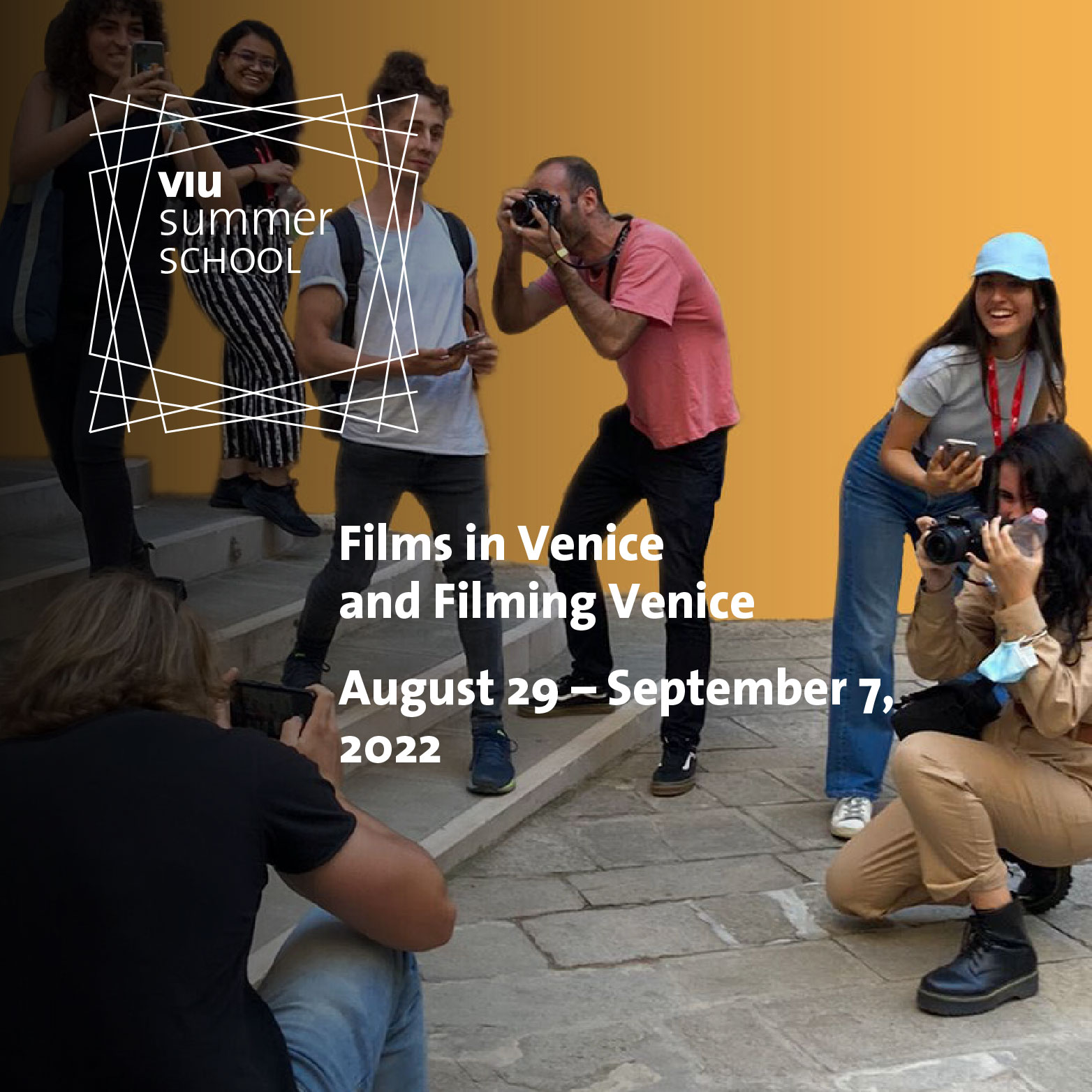 |
|
|
| |
The Summer School Films in Venice and Filming Venice is an initiative of Venice International University, in partnership with its member universities Ca' Foscari, Iuav, Tel Aviv, Waseda, Ludwig-Maximilians-Universität, and Exeter, organized to coincide with the 79th International Venice Film Festival.
The aim is to combine film theory and practice, applying them to representations of Venice, through a multidisciplinary and multicultural approach, reflected both in the composition of the faculty and the student body. In one part of the program, students will be introduced to the history, culture and anthropology of Venice and its relation to visual media. They will be offered basic notions of film analysis and film-making theory. The other part will be devoted to film-making practice. Students will be encouraged to develop a team project on Venice: a film, which will be screened and collectively discussed and analyzed at the end of the Summer School. Deserving projects will be screened at the Ca' Foscari Short Film Festival in 2023.
Suitable for: Graduate and undergraduate students from various disciplines: film studies, film-making, art history, visual art, history, cultural anthropology, sociology; and anyone who would like to learn the basics of film-making in various forms - fiction, docudrama, documentary, visual arts, etc.
Applications: December 1, 2021 – May 3, 2022
Visit Webpage
|
|
|
| |
|
|
| |
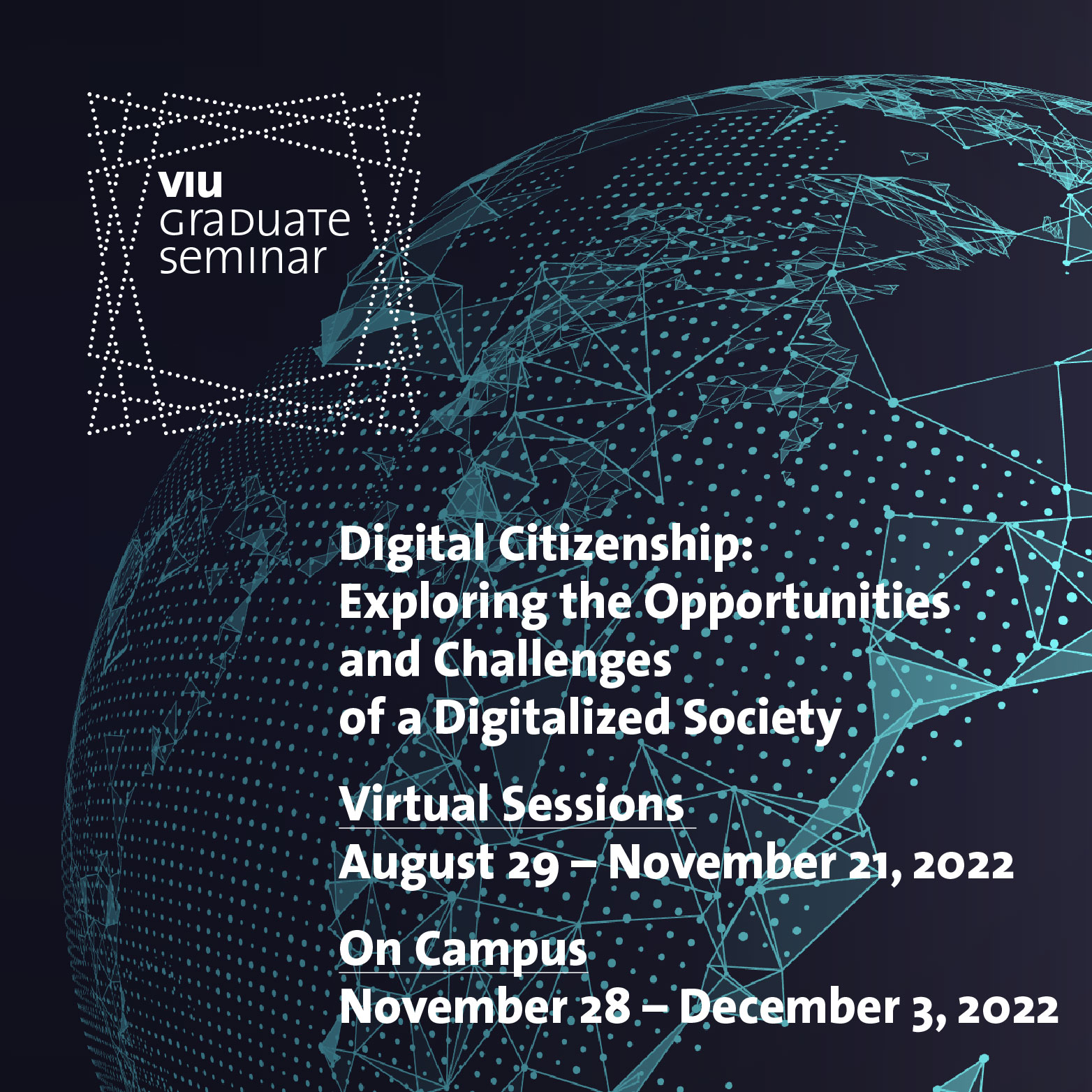 |
|
|
| |
The focus of this program will be on the subject of Digital Citizenship. It will challenge you to explore in an interdisciplinary way with your peers the questions of how we become digital citizens and how we manage, protect, and nurture our new digital society. More specifically, the program will aim to identify the worldwide challenges that digital citizenship might entail and how to tackle these challenges, be it social, economic, environmental, or otherwise.
Suitable for: advanced Master and early PhD students in all disciplines from all VIU member institutions, with an interest in the subject of Digital Citizenship.
Applications: December 1, 2021 – June 15, 2022
Visit Webpage
|
|
|
| |
|
|
| |
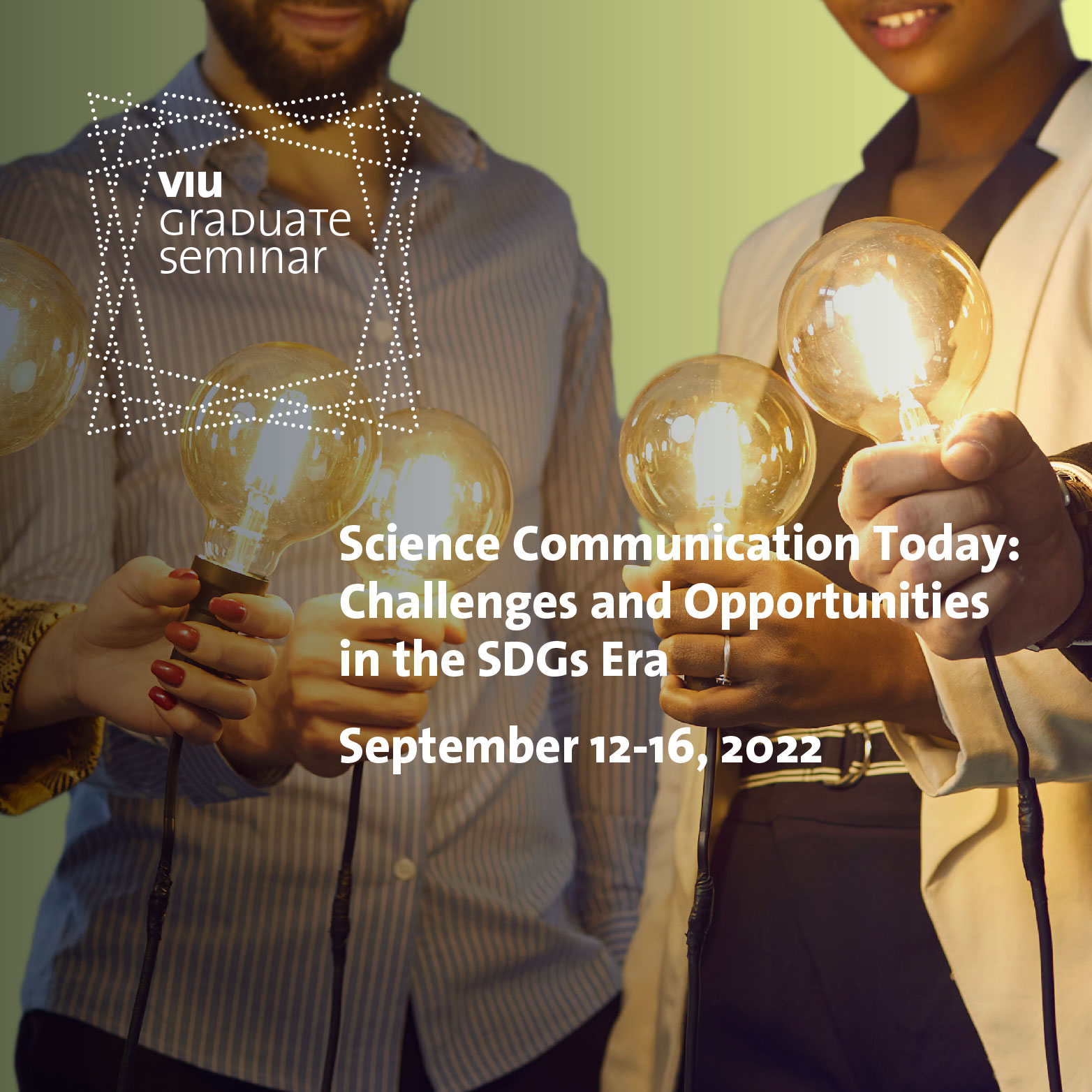 |
|
|
| |
Science communication is a key topic, as it also emerged during the COVID pandemic: it can engage different groups (e.g. citizens and decision-makers) in science, sharing knowledge and understanding, and empowering them to face today's societal challenges related to sustainable development and the SDGs.
However, Science Communication is a challenge in itself due to the existing gap between science and the wider public, as well as between science and communicators. In order to fill these gaps, critical topics in science communication such as science communication in the digitalization era, different media challenges and opportunities, the relationship between scientists and professional communicators, and quality and effectiveness in science communication need to be analyzed.
Suitable for: Advanced master students, PhD students and young researchers studying or interested in science communication from different fields, e.g. sociology, neuroscience, education science, media and communication studies, economics, humanities, as well as science and technology researchers who are keen to get involved in science communication research.
Applications: December 1, 2021 – May 12, 2022
Visit Webpage
|
|
|
|